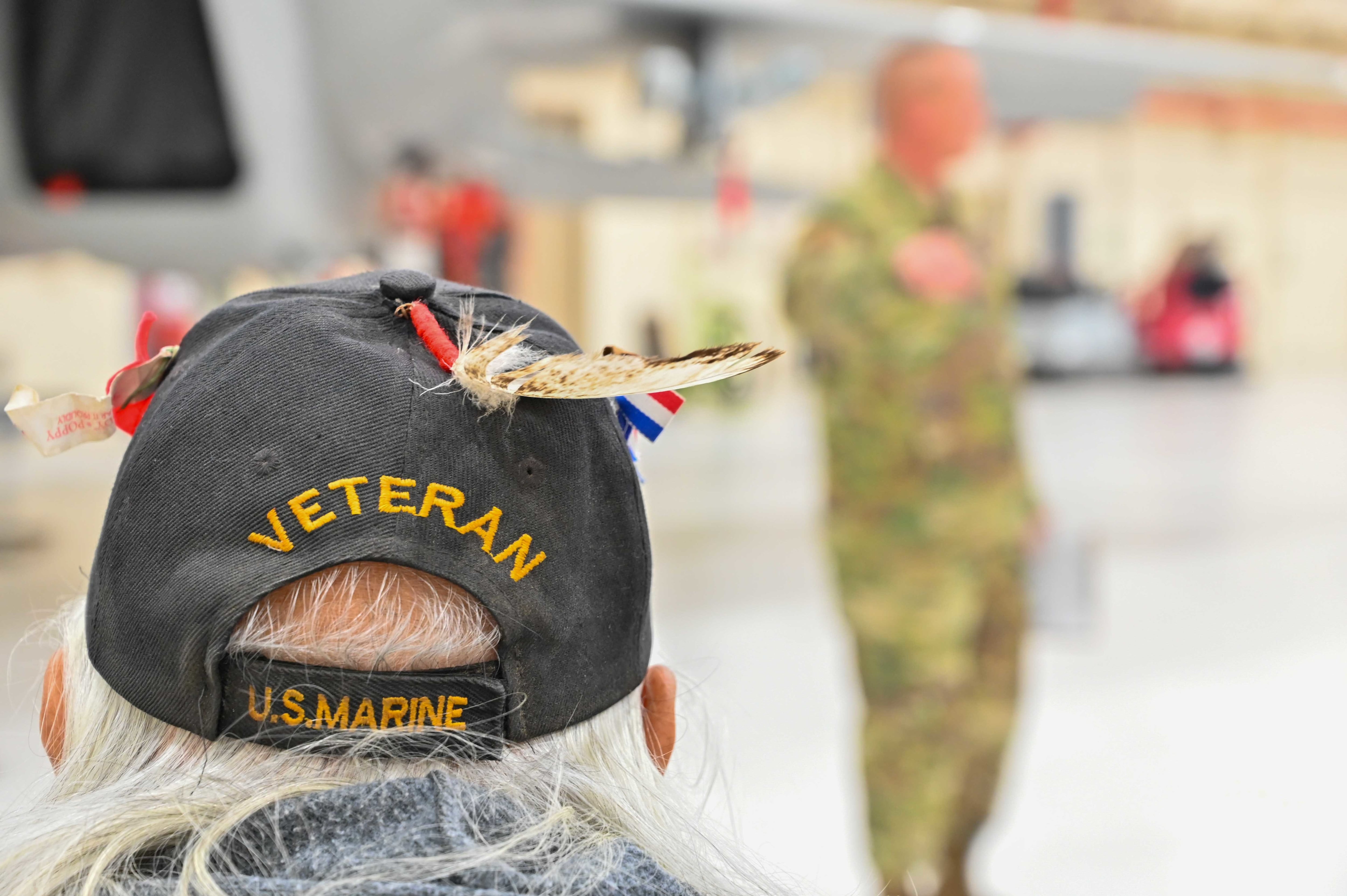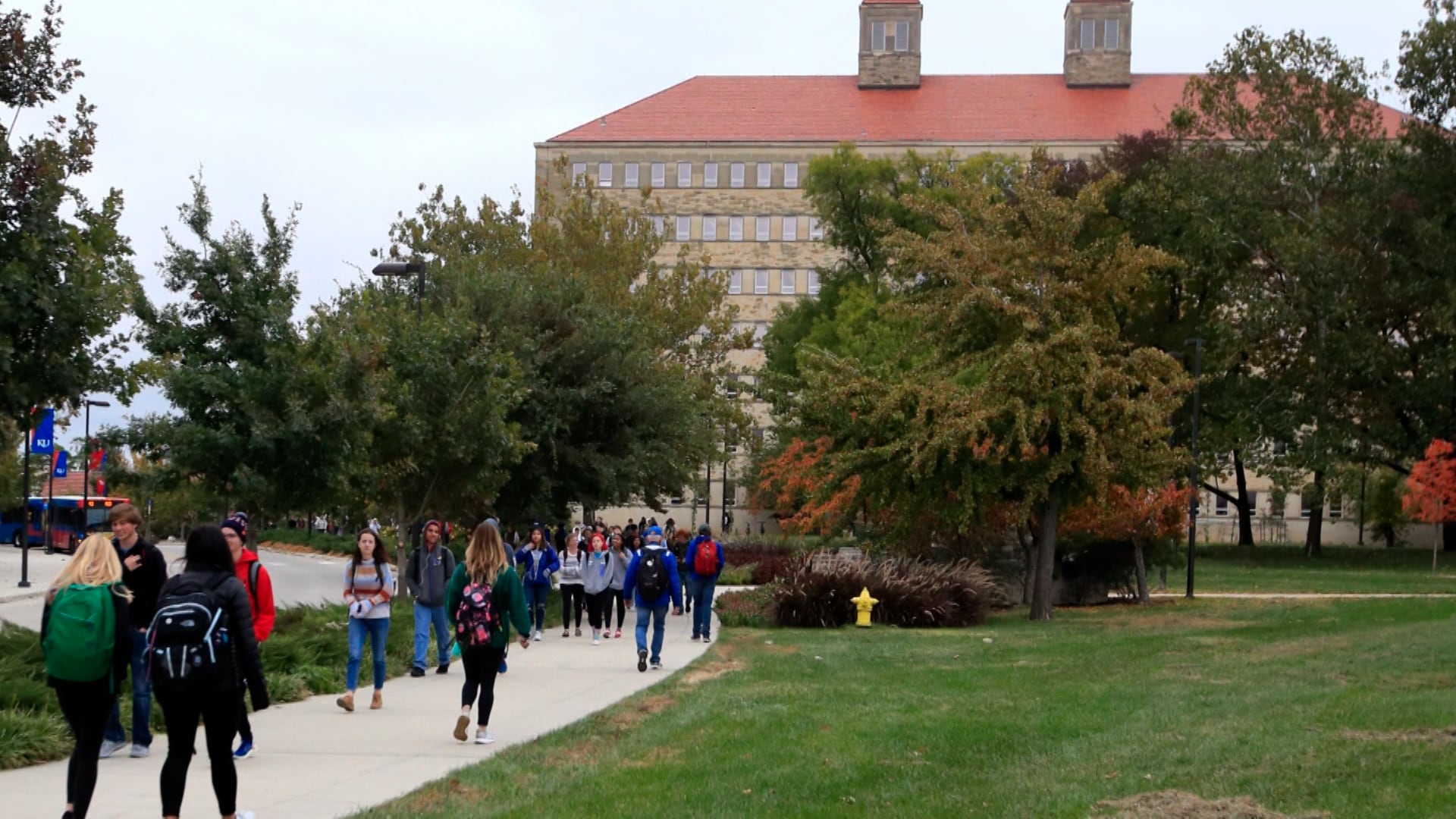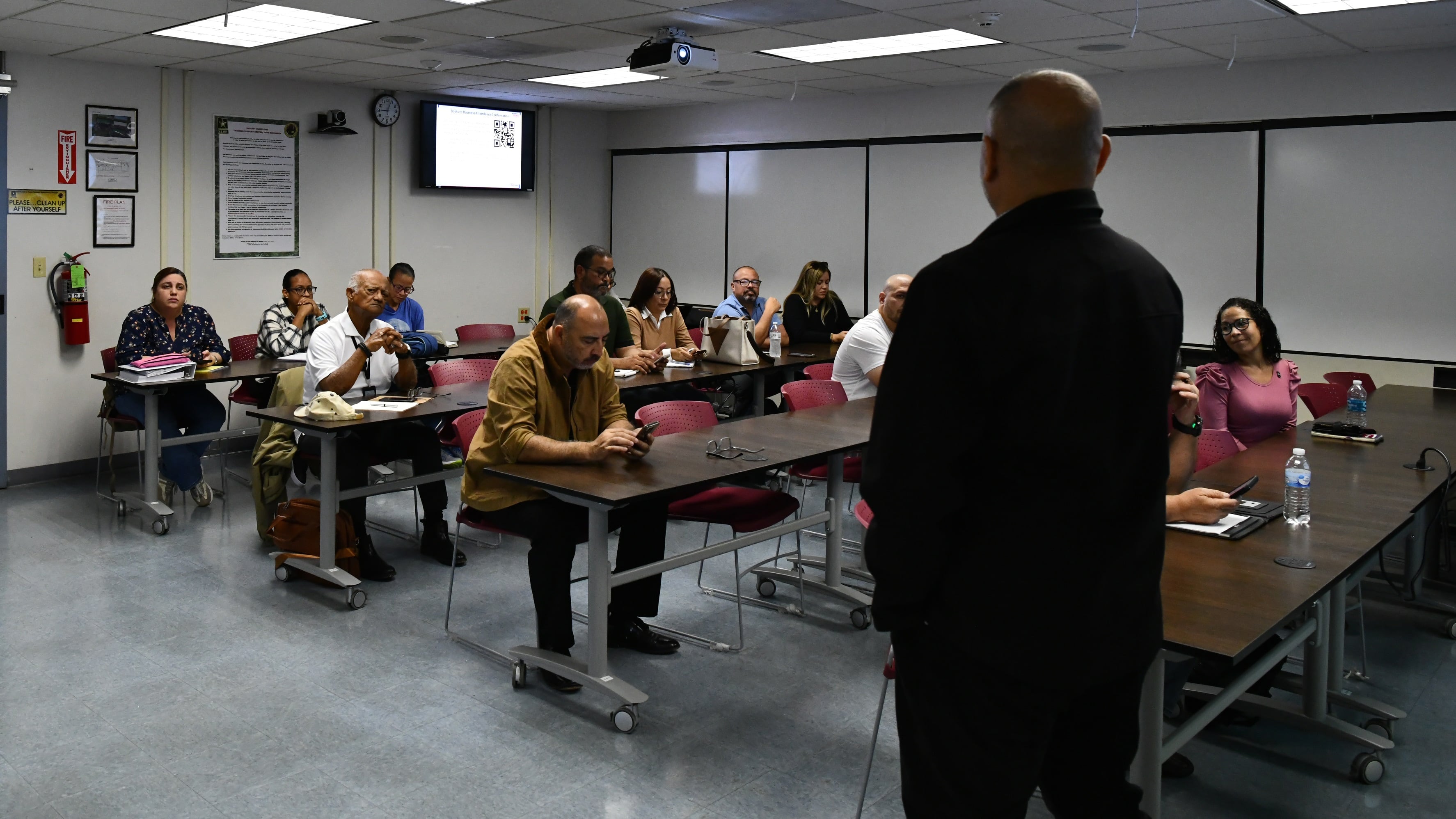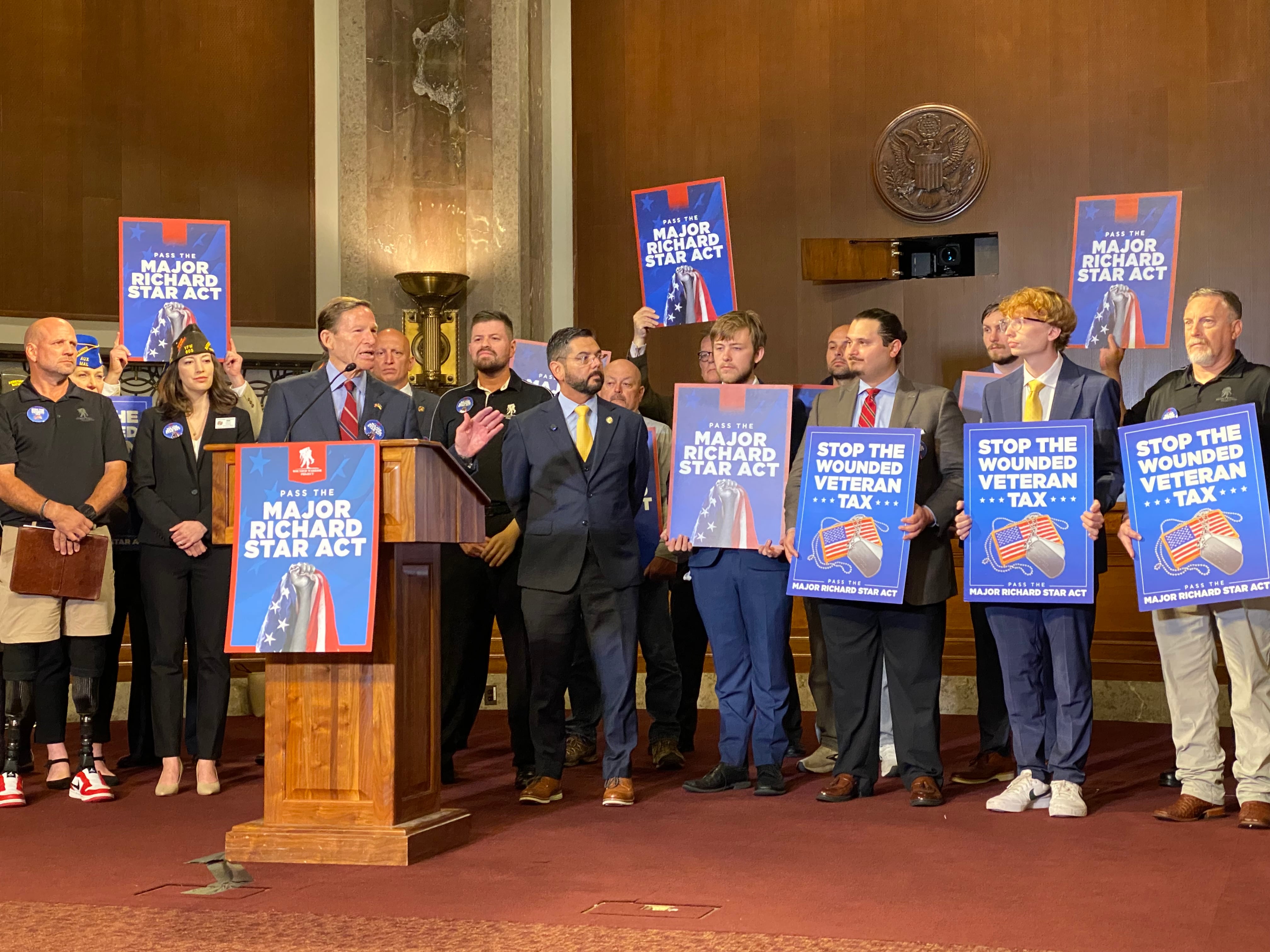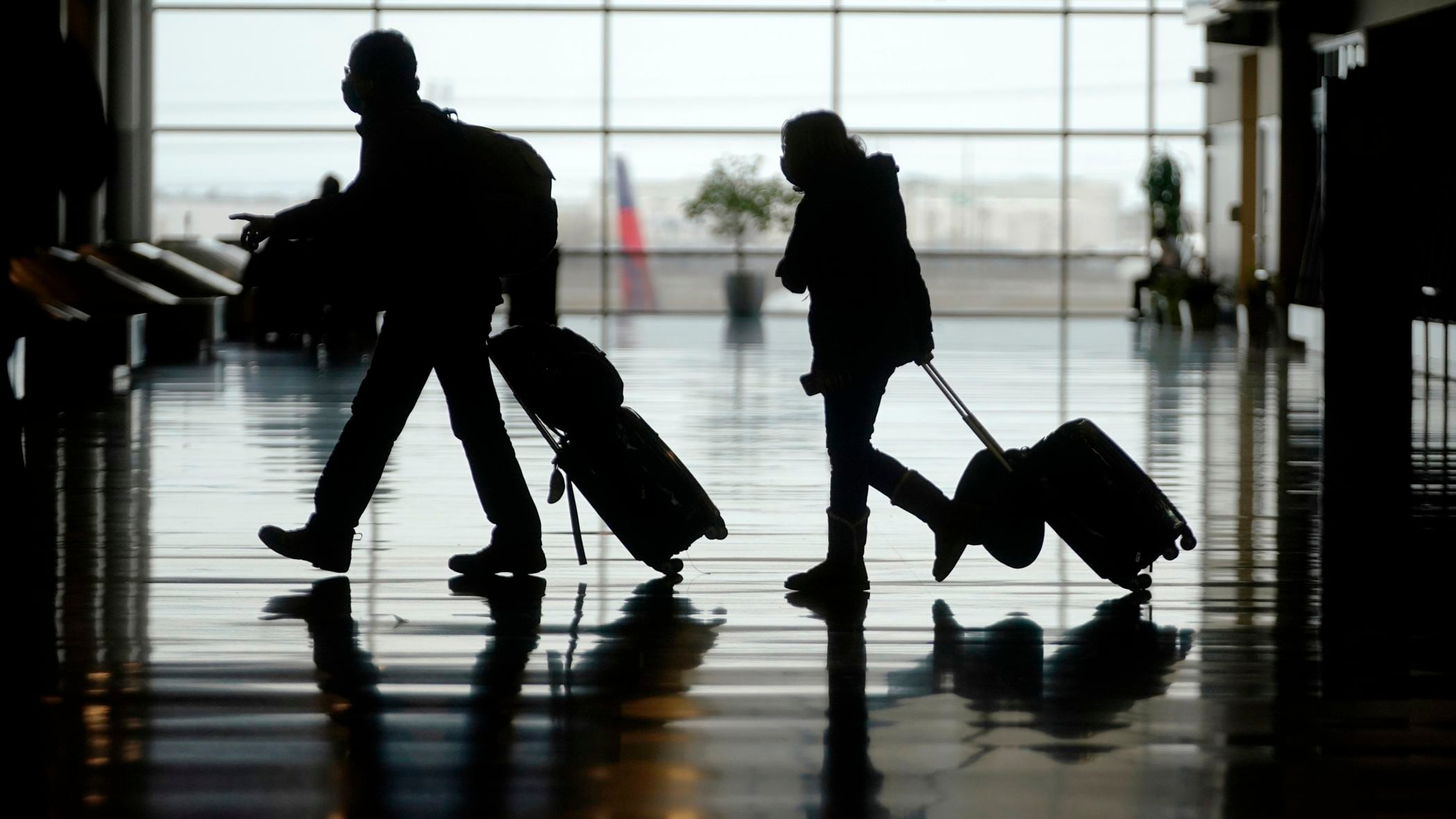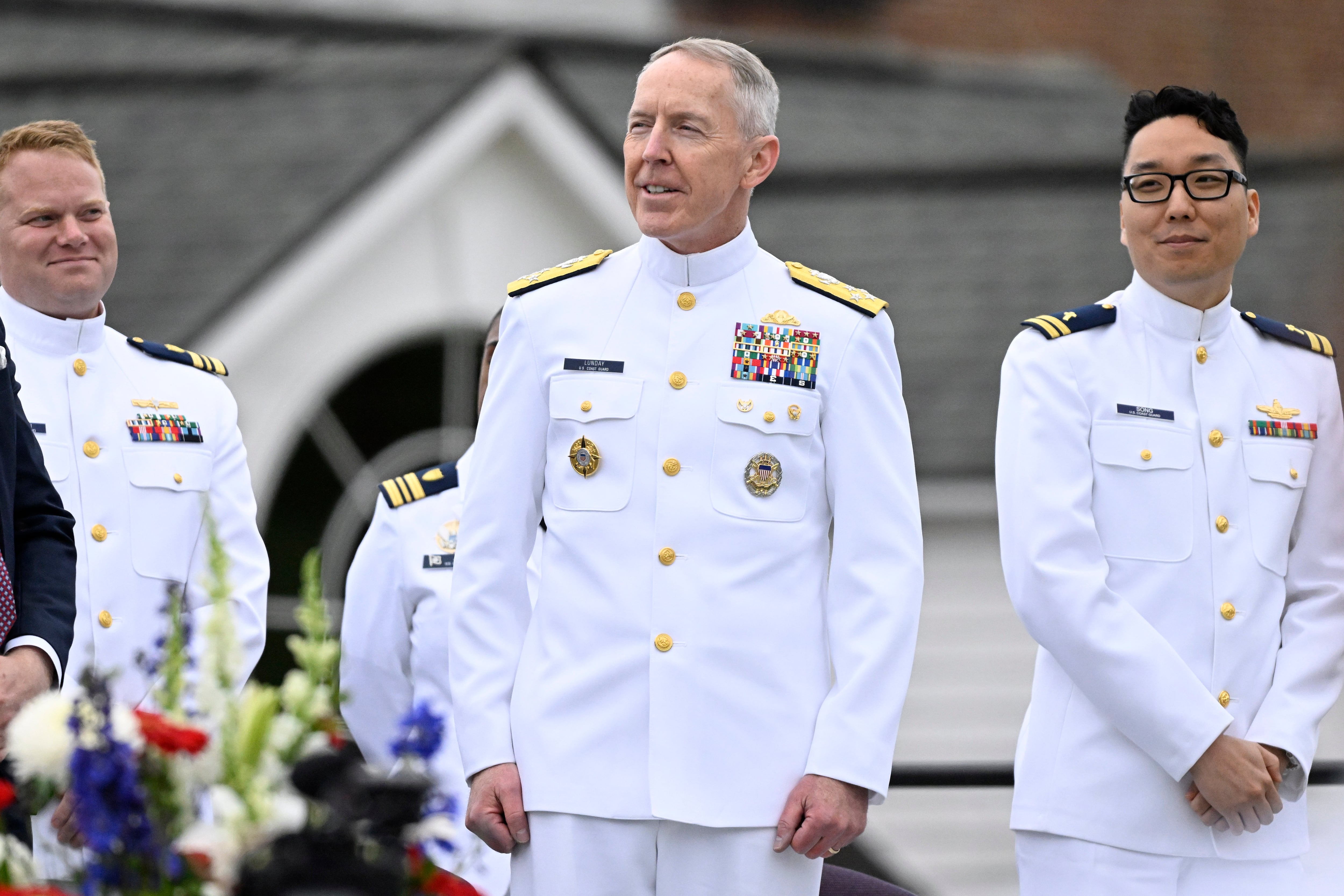An organization representing Native American veterans is set to receive a congressional charter after a nearly 20-year effort, making it the first-ever Native American-dedicated group recipient and the first of any veterans group to receive a charter in almost 15 years.
A charter for the nonprofit National American Indian Veterans, or NAIV, was included in the 2024 National Defense Authorization Act. The national defense policy bill passed through Congress last week and is headed to the desk of President Joe Biden, who is expected to sign it.
The charter will allow the organization to testify about veterans’ issues before Congress, said Joey Strickland, a retired colonel of Choctaw descent who works as the group’s chief of staff. It also provides a pathway for NAIV to have some of its members accredited by the Department of Veterans Affairs, permitting them to log into VA systems and help veterans and their families with benefits claims — assistance that is currently lacking on tribal lands.
“It was a long, hard fight,” Strickland said. “When we found out it passed, it was euphoric. This has been denied to Indian veterans for so many years, and we’ve finally made a breakthrough.”
RELATED

The organization was created in 2004 and is headquartered on the Cheyenne River Sioux Tribal Reservation in South Dakota. That’s the home of its national commander, Don Loudner, a 91-year-old Korean War veteran who founded the group with the goal of providing more representation for Native American veterans who were fighting for VA benefits, Strickland said.
American Indians and Alaska Natives serve in the military at a higher rate than any other ethnic group, but they’re less likely than other veterans to have health insurance or a service-connected disability, according to VA data.
Some advocates blame the disparity on a lack of culturally competent representation, which NAIV now hopes to provide.
“Native veterans have served our country from Valley Forge to Afghanistan, and with this action, Congress has shown Native American veterans past and present the respect that is so well-earned,” Loudner said in a statement Friday.
NAIV has pushed to receive a charter from the time it was founded. The group struggled to gain support in Congress until Sens. Mike Rounds, R-S.D., and Ben Ray Luján, D-N.M., took up the effort in 2021. This year, Rounds and Luján were successful in adding the measure to the national defense policy bill, which is viewed as a must-pass bill by most lawmakers and has advanced through Congress for more than six decades.
In a statement Friday, Rounds noted that while many demographic groups have been granted a congressional charter, Native American veterans organizations had never been among them.
“This charter will help give the NAIV a larger platform to continue advocating for and serving the more than 140,000 Native American veterans living in the United States,” Rounds said.
With the charter, NAIV now joins the ranks of prominent veterans service organizations to be recognized by Congress, such as the American Legion, Veterans of Foreign Wars and Disabled American Veterans.
The charter was endorsed by the National Congress of American Indians — a group that serves the broad interests of tribal governments and communities — as well as dozens of other tribal and veterans organizations.
“Representation is always a big thing, and having an organization that you can see yourself in … I think that’s really important as a veteran,” Courtney Steffen, the commander of The American Legion Department of South Dakota, told Military Times. “There’s not an American Legion Post in every community or reservation. There’s not a VFW post in every community. The more, the merrier.”
Overall, government recognition of Native American veterans has grown in recent years, with the VA now hosting an advisory committee tasked with taking more innovative approaches to serving the demographic. A national memorial honoring former Native American service members opened in 2020 in Washington.
Granting a charter, meanwhile, is a rare move by Congress. In the late 1980s, the House Judiciary Committee sought to limit the practice, believing that charters gave the perception that Congress was able to monitor and condone the operations of the dozens of federally chartered organizations in existence at the time.
According to the Congressional Research Service, the committee enacted a moratorium on congressional charters that lasted officially until 2019. However, lawmakers got around the moratorium on several occasions by not going through the House Judiciary Committee for approval. The most recent veterans organization to receive a charter was The Military Officers Association of America in 2009.
Dan King, a member of the Oneida Nation of Wisconsin and the former co-chairman of the veterans committee of the National Congress of American Indians, said the approval of NAIV’s charter could open the door for other groups to seek the same recognition.
“There were several Native groups that tried it, and they got turned down,” King said. “The understanding was that they weren’t issuing any national charters anymore. To me, that’s saying it would open it up for all those other groups who were trying to get a charter.”
While NAIV was eager to be granted the charter, its leaders know there remains no shortage of work ahead. NAIV is looking to better organize its efforts to help veterans, as well as grow its membership base to represent more of the indigenous community, Strickland said.
The group wants to train veterans service officers to handle VA claims for indigenous veterans across the country, he said. NAIV also plans to establish a yearly national meeting.
“We’re excited, but we now realize the hard work has to start,” Strickland said. “There’s just a lot of work that needs to be done.”
Jonathan is a staff writer and editor of the Early Bird Brief newsletter for Military Times. Follow him on Twitter @lehrfeld_media
Nikki Wentling is a senior editor at Military Times. She's reported on veterans and military communities for nearly a decade and has also covered technology, politics, health care and crime. Her work has earned multiple honors from the National Coalition for Homeless Veterans, the Arkansas Associated Press Managing Editors and others.
